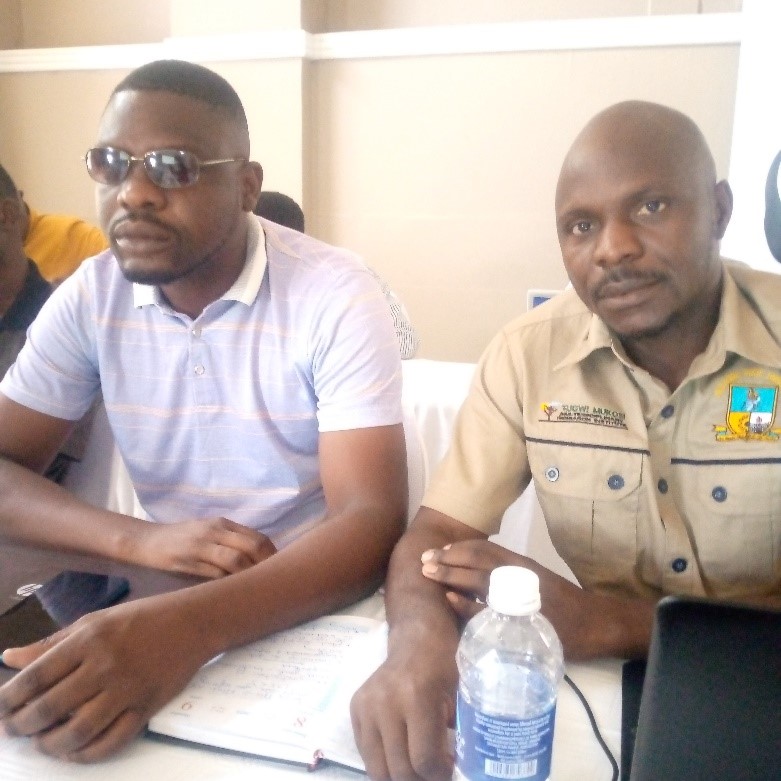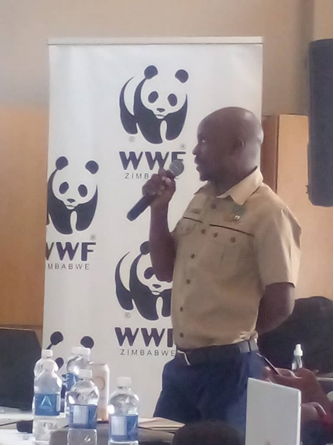MSU TUGWI MUKOSI MULTIDISCIPLINARY RESEARCH INSTITUTE (TMMRI) PARTICIPATES IN THE NATIONAL BIODIVERSITY ECONOMY DIALOGUE
Researchers in the Tugwi Mukosi Multidisciplinary Research Institute took part in the national dialogue process to map the country`s Biodiversity Economy policy. The Biodiversity Economy Policy Dialogue was held on the 14th to the 18th of November 2023 in Bulawayo. The dialogue came against a backdrop of several key policy developments at a national, regional, and international level that seeks to improve the management and sustainable utilization of natural resources. These key legislative and policy developments include the ongoing reform of the Zimbabwe Parks and Wildlife Act and the development of forestry policy. Such key policies and legislative reforms require consultation and participation of academics, researchers and think tanks. Dr. Jeke, a Biodiversity conservation specialist and Dr Zvavahera, a Fisheries and water resources management specialist at TMMRI were part of the discussants at the recently held Biodiversity Economy Dialogue in Bulawayo to discuss the key outputs from the recently released National Biodiversity Economy Report. The Dialogue series are being organized by the Africa Institute for Environmental Law (AIEL) in partnership with World Wildlife Fund (WWF). Other stakeholders who attended the dialogue include the Environmental Management Agency, FBE, African Wildlife Foundation, Africa Institute of Wildlife Economy, NMWUZ, Parliament of Zimbabwe, Zimbabwe Youth in Biodiversity Network, Zimparks, NANO, PYCD, DRAP, ZimParks, Zimbabwe School of Mines and Media houses. The objectives of the dialogue were; (1) to explore opportunities for growing Zimbabwe’s biodiversity economy into a key sector for sustainable economic growth, and (2) to facilitate a discussion on key global and regional developments in biodiversity that that Zimbabwe can learn from. The expected output from the dialogue process is a policy brief on Zimbabwe`s Biodiversity Economy which highlights opportunities for sustainable growth. In his presentation, Dr. Zvavahera emphasized the contribution of fisheries to the Zimbabwe Bio-economy. He highlighted that wild capture fisheries and aquaculture have the potential to contribute significantly to the economy of the country and improve food security. He touched on the opportunities and threats in the aquaculture and fisheries sector and gave recommendations for maximizing benefits from fisheries.



